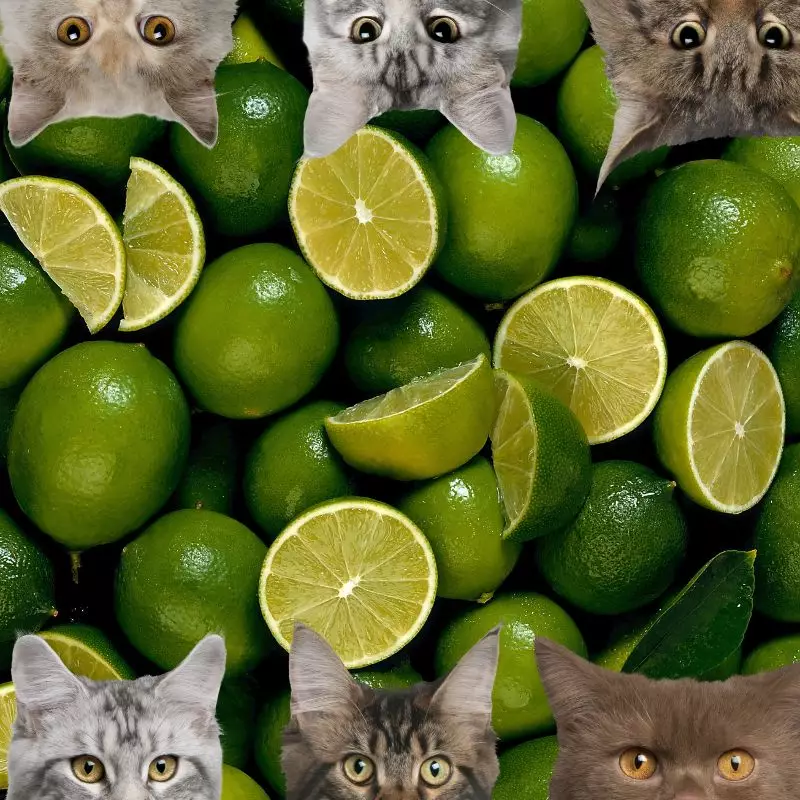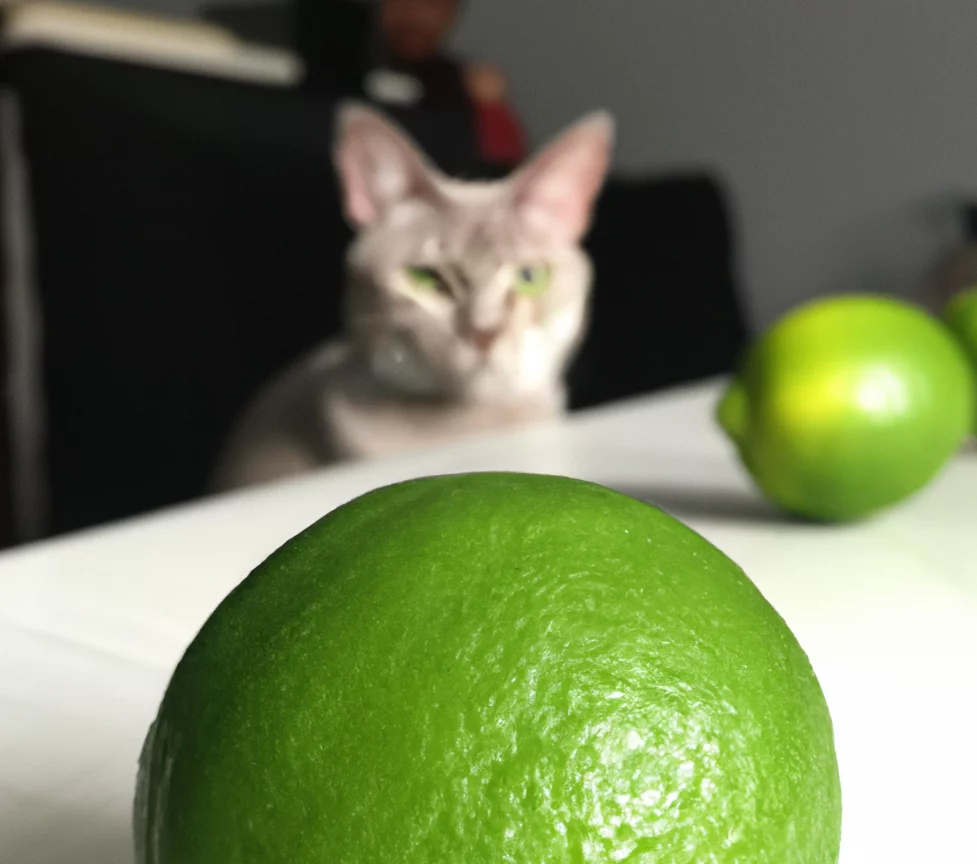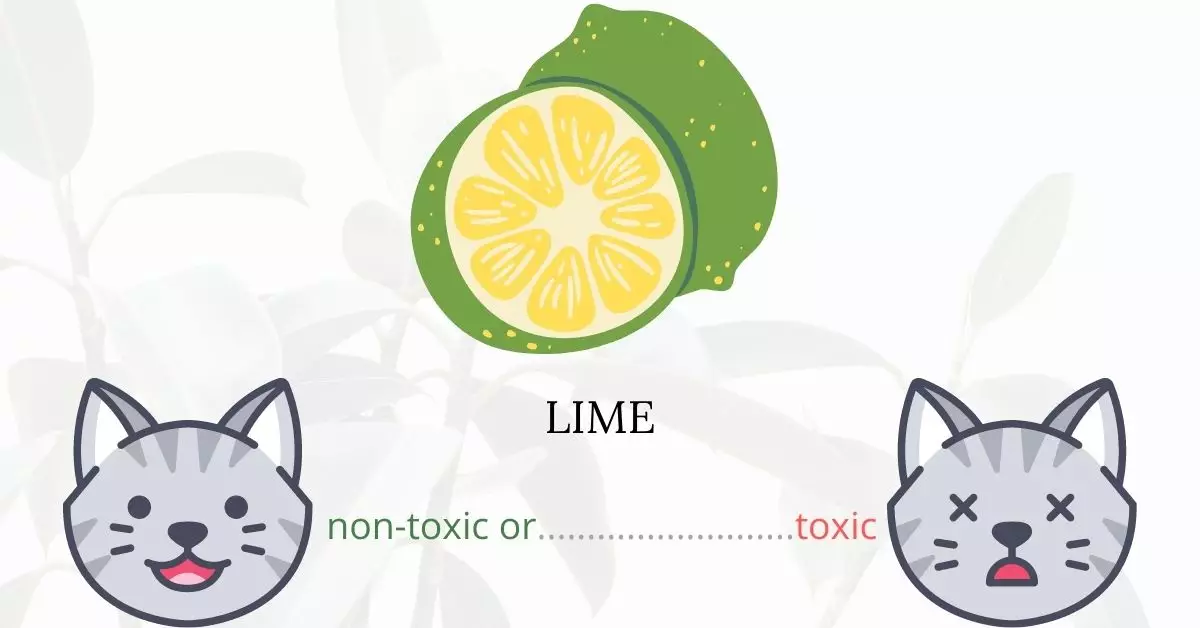Lime, a member of the citrus family, can indeed pose potential risks to cats. The primary toxic components in limes are essential oils such as d-Limonene, which have insecticidal properties. When ingested, these compounds may cause harmful reactions in cats because their livers are not designed to process them. Additionally, psoralens found in limes can lead to photosensitivity, making a cat’s skin extraordinarily sensitive to sunlight and UV rays, resulting in rashes or burns upon exposure. Other common symptoms of lime ingestion include gastrointestinal distress and neurological effects. If you suspect your cat has consumed lime, it’s imperative to contact a veterinarian immediately for an assessment and appropriate care.
This article has been written in collaboration with a team of experienced DVMs (doctors of veterinary medicine). Their valuable insights ensure we offer accurate and current information about the potential hazards of various plants, like limes, to our feline friends. To further guarantee the reliability of our information, we have extensively consulted high-authority websites such as ASPCA and PetMD for each plant we discuss.
Clinical Signs of Lime Poisoning in Cats

Lime, particularly the oils derived from it, contains compounds that can be harmful when ingested or applied to a skin of sensitive creatures like cats. The adverse reactions of these compounds on cats are primarily due to the fact that felines lack the appropriate enzymes to process them. Here are the clinical signs, their reasons, and how they might arise if a cat contacts, smells, or eats a Lime plant:
- Vomiting: Occurs due to the gastrointestinal irritation from the citrus oils. When ingested, these oils can disrupt the lining of the stomach, causing a cat to vomit as an immediate response.
- Diarrhea: Similar to vomiting, the citrus oils can irritate the intestines, leading to diarrhea as the body’s way of expelling the offending substance.
- Depression: The ingestion of lime can cause a general feeling of malaise in cats, leading them to become less active or appear despondent.
- Weakness: Due to the body’s response to the toxic compounds, cats may experience a decline in energy, manifesting as general weakness.
- Hypothermia: Lime compounds can interfere with the body’s temperature regulation, resulting in a lower-than-normal body temperature.
- Excessive drooling: The pungent and potentially irritating nature of citrus oils can cause increased salivation as a reflexive response to protect the mouth and digestive tract.
- Trembling: The neurological effects of lime poisoning can lead to muscle tremors as the nervous system reacts to the toxic compounds.
- Ataxia: Due to the impact of lime compounds on the nervous system, cats may display uncoordinated movements, a condition known as ataxia.
- Low blood pressure: The toxic effects of lime can result in vasodilation or the widening of blood vessels, leading to a drop in blood pressure.
- Photosensitivity: As mentioned earlier, limes contain psoralens which increase the skin’s sensitivity to UV light. Direct sunlight or UV exposure can cause rashes or burns on a cat’s skin after lime contact.
Always monitor your cats closely if they’ve been around lime plants or products. If any of these symptoms are observed, consult with a veterinarian promptly.
First Aid and Treatment of Lime Poisoning in Cats

The veterinarian may opt to perform gastric lavage and use activated charcoal to inhibit absorption through the intestines in situations of lime ingestion. Inducing vomit is not advised as it can risk your cat in lime oil aspiration. In cases of skin exposure, your cat will be bathed to eliminate lime oil residue and avoid further dermal absorption. Topical medication may be also prescribed by the vet.
Recovery from Lime Poisoning in Cats

Though cats are more vulnerable to severe lime poisoning, they normally recover fully once the symptoms subside. Depending on the extent of your cat’s symptoms, the veterinarian may suggest additional testing to make sure of complete recovery, particularly if neurological symptoms or organ systems were involved.
Prevention of Lime Poisoning in Cats
Always read the labels of the products you are purchasing. Products that contain d-limonene and other essential oils must be kept away from your cat’s reach. Be careful with deterrents, insecticides, and essential oils. Use limes moderately in your dishes and be sure to dispose of the parts properly after use.
If you love plants but have cats at home, check out these lists:





